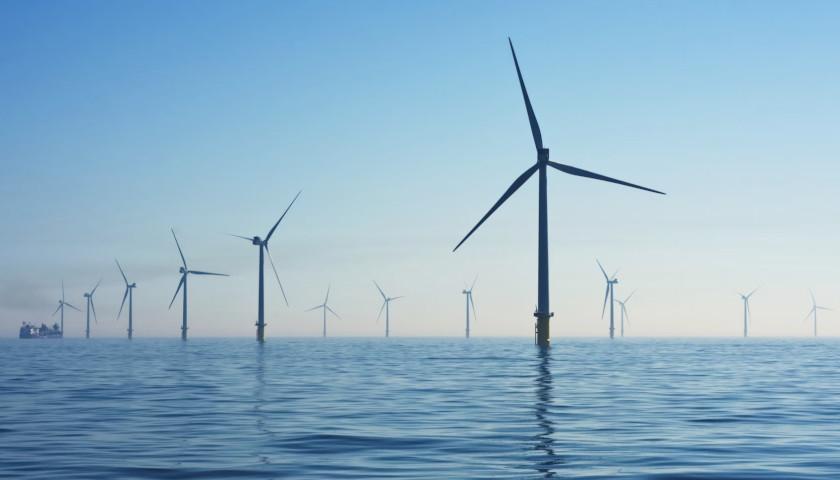by Kevin Killough
The Biden administration reportedly waived fees for an offshore wind project that are in place to ensure that the infrastructure is removed and the site reclaimed at the end of the project’s life.
President Joe Biden, as part of his climate agenda, is pushing an aggressive buildout of offshore wind projects along the East Coast. With the offshore wind industry struggling financially, the waiving of these fees raises concerns about what would happen if these companies go bankrupt and leave behind wind farms they can’t afford to remove.
Protect The Public Trust (PPT), a government watchdog group, obtained documents showing that the Bureau of Ocean Energy Management (BOEM) informed Vineyard Wind had approved the company’s request to waive fees for financial assurances that goes toward decommissioning costs.
The bureau’s reasoning for granting the deferral, according to PPT, was that the financial assurance was “unnecessarily burdensome for lessees because, at that point, they have not begun receiving project income.” Since the project is using “proven wind turbine technology” and its contracts guaranteed electricity sale prices, BOEM reasoned, the project had a predictable income over the life of the project.
The Department of Interior requires these bonds from oil and gas producers, as taxpayers have been stuck decommissioning the projects of companies that go bankrupt or were operating prior to bonding requirements.
California, for example, is trying to decommission 23 federal offshore platforms at a cost of $1.7 billion, and the liability for those costs remain unresolved. There are also thousands of onshore orphaned wells across the country that the federal government is trying to plug. In some cases, these wells were drilled a century or more ago before bonding requirements, and there’s no solvent owner of record to hold accountable for the costs.
In Wyoming, an industry sprang up a decade ago hoping to tap coal beds for natural gas, but after natural gas prices collapsed, the entire industry collapsed with it. The state was left with a lot of wells to plug and no companies to hold accountable.
While the Biden administration is granting waivers for these protections to offshore wind projects, it’s proposing steep increases in bonding requirements for oil and gas operations. While that proposal is met with support from environmentalists, industry groups have criticized the measure.
Kathleen Sgamma, president of the Western Energy Alliance, told Reuters in July that rather than trying to ensure funding for reclamation efforts, the administration was raising the costs so high as a means to reduce the number of operations.
Elmer Peter Danenberger III, a petroleum engineer with decades of experience in the oil and gas industry, explained on his “Bud’s Offshore Energy” blog that BOEM’s decision to waive Vineyard Wind’s obligations significantly increases the public’s risk exposure. Danenberger wrote that BOEM, in granting the waiver, cited a general departure authority, which was intended for special situations and not for waivers that could be applied broadly.
“There are no criteria in the Vineyard Wind waiver approval that could not apply to other wind developers,” Danenberger wrote. Due to this waiver, he explained, should Vineyard Wind fail and not fully fund their decommissioning account in a timely manner, the public will likely incur substantial costs to remove the wind towers.
“Whether the project is for oil, gas, or wind energy, protecting the public from decommissioning liabilities should always be prioritized over facilitating development,” Danenberger added.
– – –
Kevin Killough is a reporter for Just the News.




